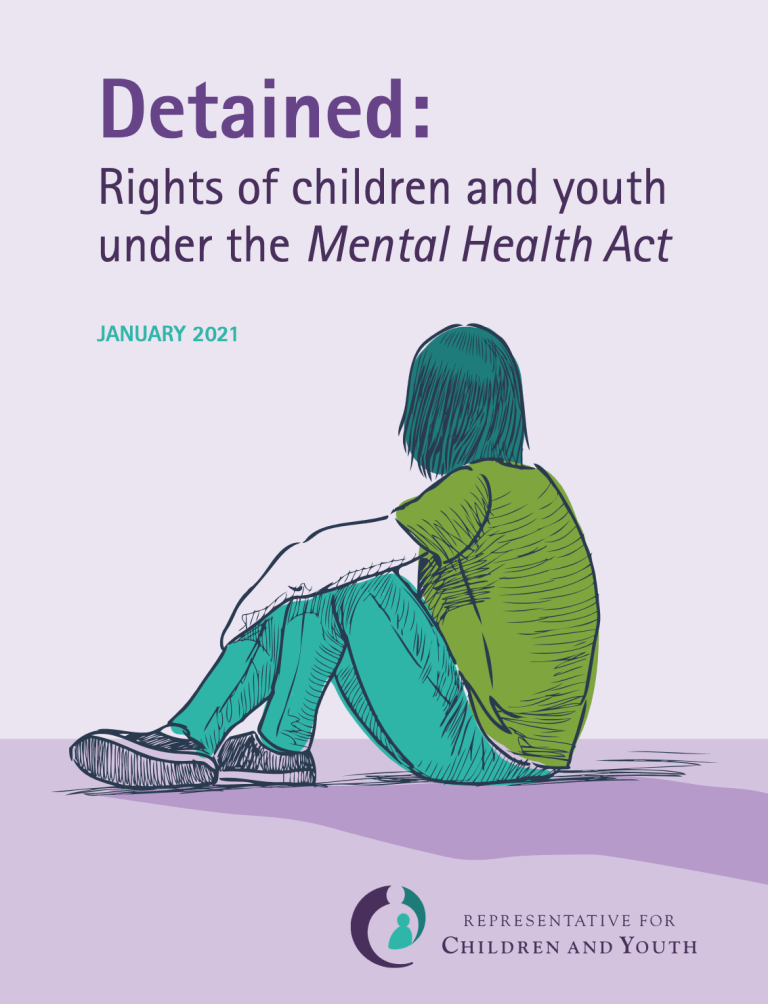Search the Baseline Project
To search the recommendations database, please visit the database main page.
To search the recommendations database, please visit the database main page.

In January 2021, B.C.’s Representative for Children and Youth published “Detained: Rights of children and youth under the Mental Health Act,” which explores the system for involuntary detention and centres the voices of youth who have experience with detention under the Act. The report highlights their insights and raises serious questions about whether they are being made aware of their rights, whether their voices are being heard and acted upon and what the long-term impacts of involuntary detention are on young people.